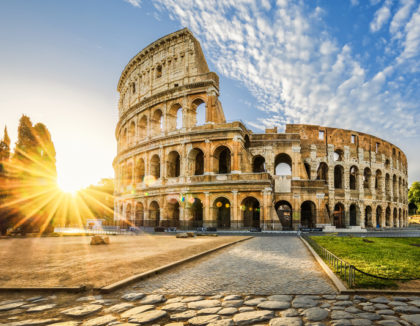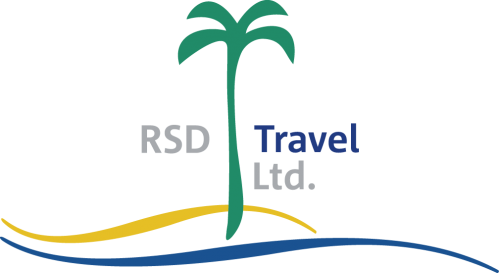Information on Croatia, Montenegro & Bosnia-Herzegovina
Comparison of temperatures
| Jan | Feb | Mar | Apr | May | Jun | Jul | Aug | Sep | Oct | Nov | Dec |
| Zagreb | 4 | 6 | 11 | 17 | 21 | 25 | 27 | 26 | 21 | 15 | 9 | 4 |
| London | 7 | 7 | 11 | 14 | 17 | 20 | 22 | 22 | 20 | 15 | 10 | 7 |
General note:
Below is an information overview. The conditions of entry, as well as the political and health situation, can change anywhere in the world at any time. We therefore recommend checking before your trip. Please check the website of the Foreign Office (www.gov.uk) before your departure.
Form of government:
Croatia: Parliamentary democracy
Montenegro: Republic
Bosnia-Herzegovina: Democratic state with two largely autonomous entities: Federation of Bosnia and Herzegovina (FBiH) and the Republic of Srpska (RS)
Capital:
Croatia: Zagreb
Montenegro: Podgorica
Bosnia-Herzegovina: Sarajevo
Religion:
Croatia: 86% Catholic, 4% Serbian Orthodox, 1% Muslim, 0.3% Evangelical, 0.01% Jewish
Montenegro: 72% Serbian Orthodox, 3.5% Catholic, 16% Muslim
Bosnia-Herzegovina: 50.7% Muslim, 30.7% Serbian Orthodox, 15.2% Catholic
Language:
Croatia: Croatian; in areas with strong ethnic minorities, also in official use: Serbian, Italian, Hungarian.
Montenegro: Montenegrin (primarily Latin script, but Cryllic still in widespread use). Albanian is the official language of instruction in schools in the predominant settlement area of this population group. Pupils there can choose between Montenegrin and Albanian.
Bosnia-Herzegovina: Bosnian, Croatian with Latin alphabet and Serbian with a Cryllic alphabet.
Climate:
Mediterranean on the Adriatic coast, temperate inland.
Electricity:
230 V, 50 HZ. An adapter is required.
Local time:
Part of the Central European Time zone where GMT+1 applies, along with daylight saving time.
Making telephone calls:
For telephone calls to the UK, please dial the country code 0044 first. For calls to the destination country, please dial the country prefix of the country first:
Croatia: 00385 | Montenegro: 00382 | Bosnia-Herzegovina: 00387
Omit the first zero in the area code.
Entry requirements for British citizens:
Croatia: British citizens do not need a visa for stays of up to 90 days. Your passport must be less than 10 years old on the day you enter Croatia and valid for at least 3 months after the day you leave. If you renewed your passport early, extra months may have been added to its expiry date. This could affect the requirement for your passport to be less than 10 years old. http://www.mvep.hr/en/consular-information
Montenegro: British citizens do not need a visa for stays of up to 90 days. Your passport should be issued in the last 10 years and valid for a minimum period of 90 days from the date of departure from Montenegro. https://www.gov. me/en/diplomatic-missions/embassies-and-consulates-of-montenegro
Bosnia-Herzegovina: British citizens do not need a visa for stays of up to 90 days. Your passport should be valid for a minimum period of 90 days from the date of departure from Bosnia-Herzegovina.
http://www.mvp.gov.ba/konzularne_informacije/vize/Default.aspx
Nationals of other countries are advised to inquire at the embassies of Croatia, Montenegro and Bosnia-Herzegovina about the entry requirements applicable to them.
The EU has a new visa waiver system, called ETIAS, which will be valid for three years. British passport holders travelling to the EU will need to apply and pay for an ETIAS, via an online system (https://etias.com/).
Whilst we endeavour to provide guidance where necessary, we can not be responsible for any problems encountered (whether at any point of entry or elsewhere) in the event that passport and visa requirements are not satisfied.
Tour guides:
Your expert tour guides will be able to provide you with detailed information about the country, people, history, culture, etc., and offer advice and assistance for organising your trip. They can also help with room allocation and look forward to welcoming you with initial information. Here you will find out all you need to know and useful information about the trip. We have put together a varied programme including numerous highlights, enabling you to experience the culture and diversity of landscape that Croatia, Montenegro and Bosnia-Herzegovina have to offer.
Additional packages:
Although your trip already includes a comprehensive package, you also have the option of choosing added extras. We recommend booking the following packages:
Gourmet package: he package includes half-board, i.e. delicious buffet every evening with international specialties during the 7-day cultural trip: only £154 per person
Explorer package: The package includes a visit to Mostar, a boat ride to Kotor and a visit to Perast & Lady Rock Island: only £139 per person
Currency:
Croatia: Croatia belongs to the European Monetary Union, so their currency is the euro (EUR). Exchange rate (as of June 2024): 1 GBP = 1.19 EUR; 1 EUR = 0.84 GBP.
Montenegro: Montenegro belongs to the European Monetary Union, so their currency is the euro (EUR). Exchange rate (as of June 2024): 1 GBP = 1.19 EUR; 1 EUR = 0.84 GBP.
Bosnia-Herzegovina: The currency unit is the convertible mark (BAM). 1 mark = 100 fening. Exchange rate (as of June 2024): 1 GBP = 2,32 BAM; 1 BAM = 0.43 GBP.
Bed Tax:
A bed tax of up to 3€ (approx. £2,65) per person/night (last revised: August 2023) in Croatia, Bosnia-Herzegovina and Montenegro is payable on site.
Banks/Credit cards:
Croatia: Credit cards are accepted in most hotels, restaurants, petrol stations and shops. Cash withdrawals are possible at most ATMs with the EC-Maestro card or a credit card.
Montenegro: Common credit cards are accepted nationwide. ATMs are widely available. Acceptance of V-Pay and Maestro bank cards is limited. These can only be used to withdraw cash at a few ATMs, but not for general payment transactions.
Bosnia-Herzegovina: Cash can be withdrawn at ATMs using credit cards and a PIN. Credit cards are increasingly accepted at hotels, restaurants and shops, but it is recommended to pay in cash. To ensure smooth payments, it is recommended to carry bank notes of a smaller denomination. Public institutions (e.g. the post office) only accept payments in BAM.
Customs regulations:
Croatia: Goods imported in personal luggage with a total value of more than €300 (approx. £255) for land entry and more than €430 (approx. £366) for air or sea entry are subject to VAT. If the value of the goods exceeds €1,200 (approx. £1,021), both VAT and customs duty are charged. Restrictions on the movement of goods in personal luggage must also be observed, including conditions for the duty-free admission of excisable goods (tobacco products, alcohol and fuel). Cash and checks must be registered in writing from an amount of €10,000 (approx. £8,509) (or equivalent value). Additional information can be found from the Croatian customs administration (https://carina.gov.hr/). Items brought in or carried that are suitable for an attack, such as pepper spray or knives, must be presented when crossing the border. Violations are punishable by heavy fines.
Montenegro: Importing and exporting foreign currencies is permitted up to an amount of the equivalent of €10,000 (approx. £8,509). Personal need goods may be temporarily imported duty-free, but must be exported again. Certain objects (cameras, laptops, similar) have numerical restrictions. There are restrictions for duty-free import for the following goods: Alcohol (2l wine or 1l spirits over 22%), tobacco products (200 cigarettes or 50 cigars or 250 g smoking tobacco), perfume or cologne (50 grams).
Bosnia-Herzegovina: Foreign currencies can be declared, but this is not expressly required. People in possession of a weapon will be rejected at the border. The same provisions as in EU countries apply to the import of cigarettes and alcohol.
Important: If you are travelling to Great Britain from outside the UK, your personal allowances mean you can bring in a certain amount of goods without paying tax or duty. If you go over your allowances you must declare all your goods and pay tax and duty on all the goods in that category. Please inform yourself about the current customs regulations: www.gov.uk/bringing-goods-into-uk-personal-use/arriving-in-Great-Britain
Safety instructions:
Petty crimes tend to be lower in the cities than in some other major European cities. Nevertheless, tourists should take the usual level of care here. European driving licenses and travel documents as well as travel documents with European residence permits are coveted items to steal.
Special criminal provisions:
Croatia: There are no special instructions.
Montenegro: Sexual acts on minors has been punishable since January 01, 2006. The purchase, sale or possession of drugs is severely punishable. This also applies to smaller quantities exclusively for your own use.
Bosnia-Herzegovina: Certain buildings and institutions have a no photography policy, which is indicated by the appropriate signage (including US embassy in Sarajevo). Fines must be paid if ignored.
Medical information:
At least 8 weeks before your trip, check the latest country-specific health advice from the National Travel Health Network and Centre (NaTHNaC) on the TravelHealthPro website (https://travelhealthpro.org.uk/countries). Each country-specific page has information on vaccine recommendations, any current health risks or outbreaks, and factsheets with information on staying healthy abroad. Eating hygienic food and drink and using mosquito repellent can be used to avoid diarrhoea and other infection diseases.
There is no guarantee for the correctness and completeness of the medical information and no liability for any damages that occur. You alone are responsible for your health.
Medical care:
Croatia: Acute medical treatment is possible upon presentation of the UK European Health Insurance Card (new UK EHIC) or the UK Global Health Insurance Card (GHIC). Additional payments must be made in some cases. A prompt payment of the treatment costs is demand in some cases. In such cases, it is recommended to have a detailed invoice issued. Costs for repatriation are not covered by the statutory health insurance, which is why it is recommended you get private travel health insurance. In addition to physicians in private practices, there are health centres in many places (‚Dom Zdravlja‘). Most polyclinics are private practices.
Montenegro: Medical care according to British standards is not always guaranteed. Hospitals also do not always have adequate equipment and are sometimes unable to provide patients with certain medical conditions appropriate medical care. Hygienic levels are generally not sufficient.
Bosnia-Herzegovina: Medical care in the country is often problematic in many respects. There are few English-speaking physicians, especially outside the major cities.
It is recommended to take out foreign health insurance with the option of return medical transport to the UK.
Customers should ensure that they are physically and psychologically fit for undertaking the selected trip and make the necessary queries concerning the level of physical and psychological fitness required. Please observe that the excursions are accessible by foot only and that the buses used for the roundtrip are not customised to transport wheelchairs or similar devices.
All information is subject to change/Last updated: June 2024
back Information & tips
 Travel highlights
Travel highlights
 Europe
Europe
 Asia
Asia
 America
America
 Africa
Africa
